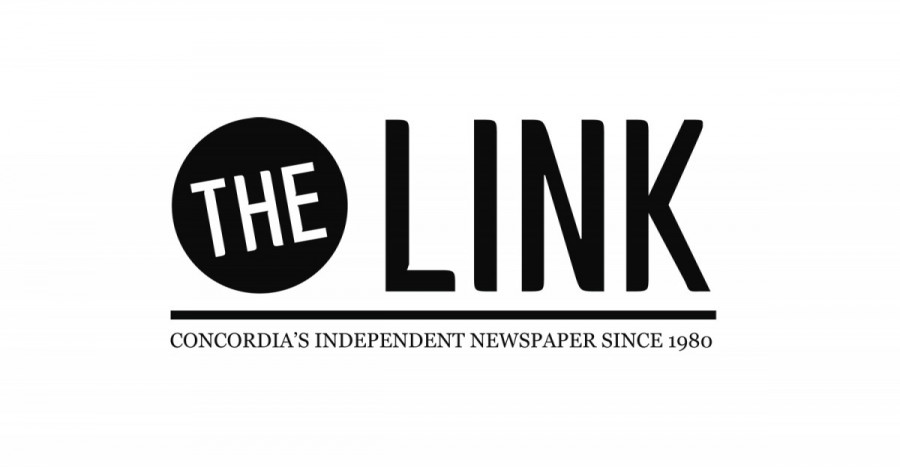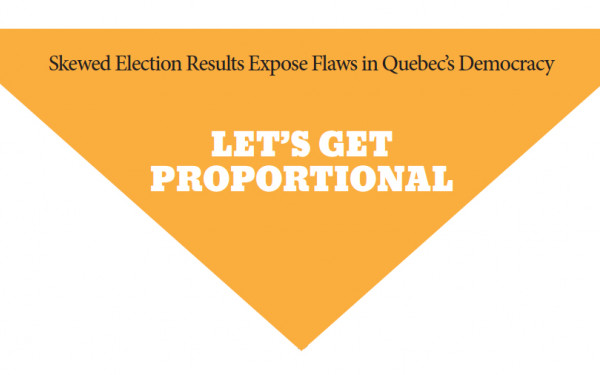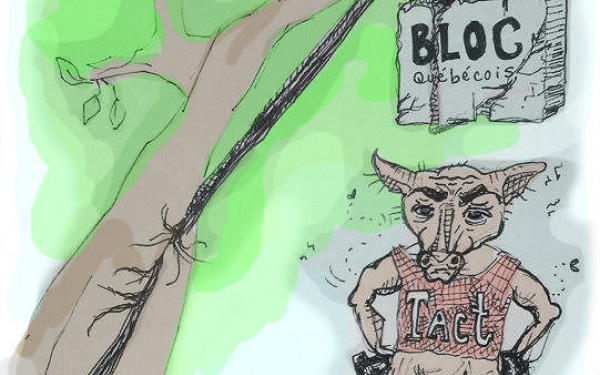Dividing Times
Why We Can’t Move Forward With Straw Men at Our Side
As the American electoral season draws to a close, most Canadians have spent a certain amount of time debating—or at least contemplating—the issues at stake and whom we would hypothetically vote for, on Nov. 6.
Those who have followed the American presidential race can testify to the fact that Barack Obama and Mitt Romney have led arguably the most negative presidential campaigns in history.
Much ink has flowed, both in the United States and up here in Canada, on the topic of negative representation—even more so since the beginning of the presidential debate period, and its infamous made-to-be-memed zingers.
There is a difference, however, between American and Canadian media coverage of the topic, and it’s in the undertone.
For better or for worse, many Canadians have developed a singularly judgmental view of our southern neighbours and their institutions, a phenomenon the eight years of George W. Bush’s presidency did little to allay. Many of us criticize what we see as failings in our American neighbours, while simultaneously ignoring the presence of the very same faults at home.
This Canadian double-standard is particularly evident in our critique of “U.S style elections” and their sensationalist “pomp and circumstance” tendencies.
Are we so short-sighted that we’ve forgotten the Conservatives’ relentless barrage of attack ads against the Liberals in 2011?
Have we forgotten them touting their infamous “just visiting” taglines about then-Liberal Party leader Michael Ignatieff? Or National Post columnist Christie Blatchford’s vitriolic statements about the New Democratic Party and Jack Layton’s personal life?
Even if 2011 is too long ago for us to remember, we can all clearly recall the way the anglo popular media portrayed Pauline Marois as a referendum-waving xenophobe in the run up to Sept. 4’s provincial elections.
If only Sunday morning cartoons had modern retellings of the notorious ’70s classic “The René and Pierre Show”—where lifetime political opponents Pierre Trudeau and René Lévesque engaged in one of our country’s most defining political dialogues with the dignity and respect they both deserved.
This recurring trend of demonizing our political opponents is, nonetheless, present on all sides of the political spectrum and one needs only look at last spring’s student movement and its depiction of Jean Charest to realize it.
There is however, a cause for the progressive development of violent rhetoric in Canada. The quality of our public discourse is by necessity largely dependent on the quality of our politics.
Since his election to a majority government on May 2, 2011, Harper seems to have chosen to discourage intellectual debate. To whit: omnibus bills, accelerated voting procedures, disregard for question periods, cuts to the Canadian Broadcasting Corporation and the National Archives.
If only Sunday morning cartoons had modern retellings of the notorious ’70s classic “The René and Pierre Show”—where lifetime political opponents Pierre Trudeau and René Lévesque engaged in one of our country’s most defining political dialogues with the dignity and respect they both deserved.
Civilized debate should be the driving force behind any democracy. By simply relying on hyperbolized and sensationalist depictions of our political opponents we accomplish nothing more than an attempt to muzzle our opposition out of ideological principle, rather than by a rationalized rebuttal.
Unfortunately, North Americans on both sides of the 49th parallel live in a political environment where rational democratic arguments are increasingly being set aside in favor of pejorative sophistry.
Canadian society is divided, and nowhere is this division more vividly represented than in the radicalization of the public discourse.
By aping the politically bellicose rhetoric we are so quick to criticize in our neighbours, we are rapidly replacing the once-valued quality of our discourse with our very own brand of “U.S. style” us-versus-them ideological bickering.
If we’re going to bash the political theatre south of the border, we should work to clean our own house first.




_600_375_90_s_c1.jpg)

_600_375_90_s_c1.jpg)